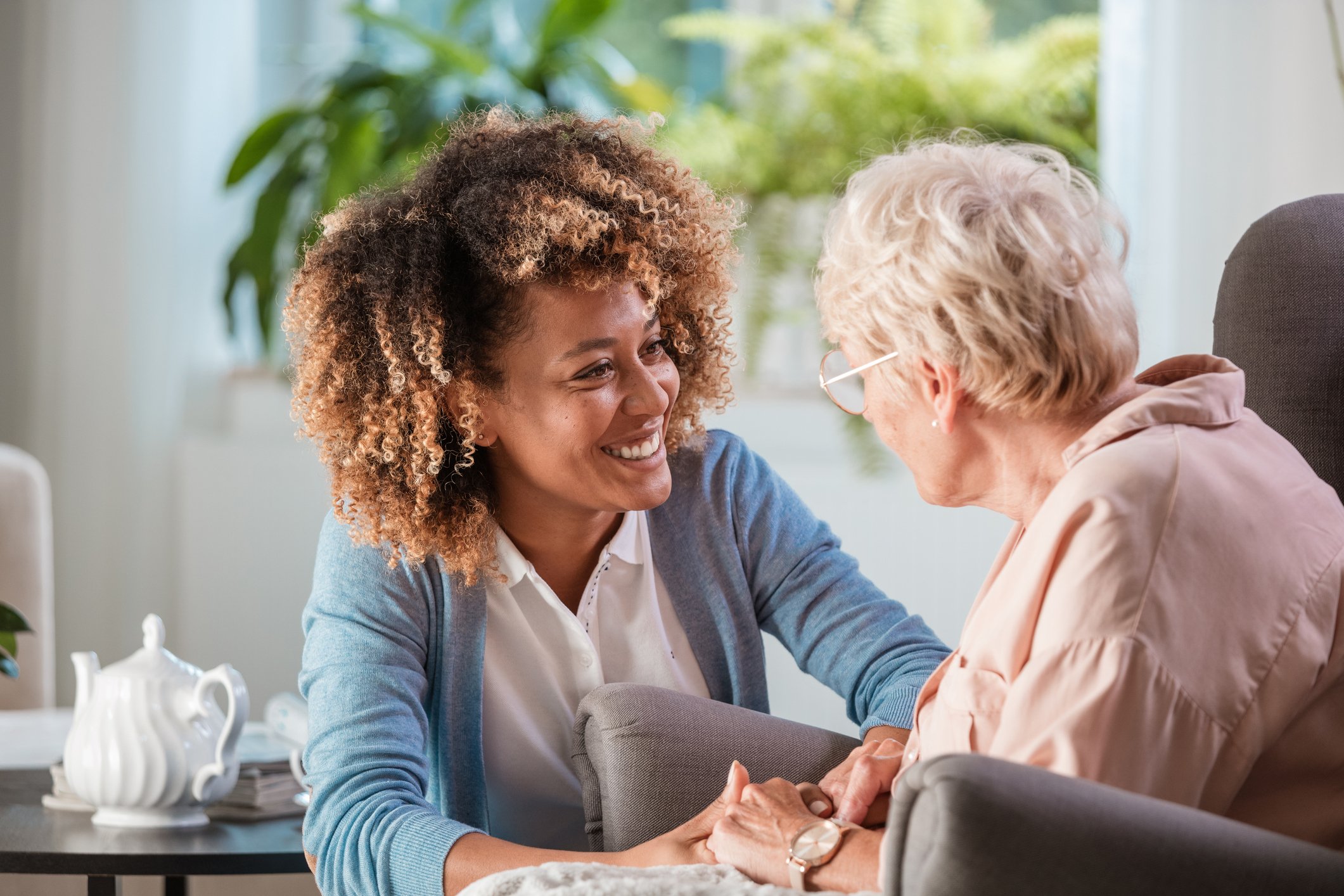
The leaves are turning and before long, the holidays will be here. For millions of caregivers, that can be an overwhelming prospect as they tend to the daily needs of an elderly loved one. According to the “2020 Report Caregiving in the U.S.,” prepared by AARP and the National Alliance for Caregiving, the number of caregivers is rising significantly with 41.8 million U.S. adults providing care to a person age 50 or more in 2020, up from 34.2 million in 2015. Although many are happy to do so, the job comes with risks that may not be recognized until it’s too late. These include more stress and strain on physical, emotional and financial resources, and even health problems for caregivers.
But there is a solution! Respite care provides loving and attentive care to seniors while caregivers take a well-earned break. Before the holidays arrive, take a look at how respite care can benefit caregiver and senior alike, giving both the opportunity to rest and recharge.
Avoid or address caregiver burnout –
Needless to say, 2020 has been a difficult year for everyone. The impacts of COVID-19 have made life more difficult, more isolating and more dangerous. For caregivers, it may have accelerated caregiver burnout, a very real and tangible state that can have very adverse consequences. Symptoms of burnout are many and include physical, emotional and mental exhaustion, feelings of negativity, depression and anxiety, and changes in eating and sleeping habits.
All of these are signs that a change is needed. This is especially true for caregivers who have no outside help from friends or family, and are feeling they can no longer keep up or do a good job caring for their loved one. Whether those feelings exist already or are slowly creeping up, respite care provides the perfect opportunity to reassess the situation while ensuring a loved one receives the care they need. Learn more about the realities of caregiver burnout in the webmd.com article, “Recognizing Caregiver Burnout.”
Recharge your engine with respite care –
Even if a caregiver isn’t experiencing symptoms of burnout, a break can be a great way to simply make self-care a priority. According to caregiver.org’s article, Caregiver Health,” “Nearly three quarters (72%) of family caregivers report not going to the doctor as often as they should and 55% say they skip doctor appointments for themselves. 63% of caregivers report having poor eating habits than non-caregivers and 58% indicate worse exercise habits than before caregiving responsibilities.” As the number of caregivers grows, these statistics could really impact society as a whole.
Respite care provides time to take stock, see a physician and/or dentist, start a new exercise regimen, concentrate on a forgotten hobby, and address problems with diet and nutrition. Every positive thing a caregiver does for themselves will be adding to their happiness and that of the senior under their care. Find out tips for making self-care a part of life in the Psychology Today article, “Self-Care: 12 Ways to Take Better Care of Yourself.”
Refresh your relationship –
The relationship between a caregiver and senior can often change over time, even when it is built on a foundation of love and caring. Being in close proximity day and night can cause strained communications, make daily interactions stressful, and degrade relationships. When this happens, the ability to provide loving care may be impacted and the caregiver and senior will both feel the repercussions.
To keep the relationship on solid ground, respite care gives both parties a brief separation without sacrificing the level of care needed. After all, absence makes the heart grow fonder, and a little time away may be just the thing to help each appreciate how much they care for and miss the other. Our blog, “When Respite Care is the Perfect Solution,” explains how much respite care can help!
A chance to make new friends and relationships –
While respite care is very helpful, even essential, for caregivers, seniors have plenty to gain as well. For starters, just a simple change of scenery can bolster their sense of well-being, especially after the isolation brought on by COVD-19. Another positive aspect is the opportunity to meet new people, make friends and maybe even reunite with friends from the past. Seniors in respite care will have the chance to take part in special events and outings and enjoy great meals, all the while receiving top-notch care from professionals. For some seniors, respite care also allows them to feel they are not a burden and that their caregiver is getting the rest they deserve. Find out what to expect in respite care at Ganton’s Countryside on our Facebook page.
Respite care really is a win-win and there’s no better time to try it than before the hectic holidays set in. For more information about Countryside, please call Margaret Nagel at (517) 206-5000 or download our brochure to learn about our care levels, cost, and amenities.
